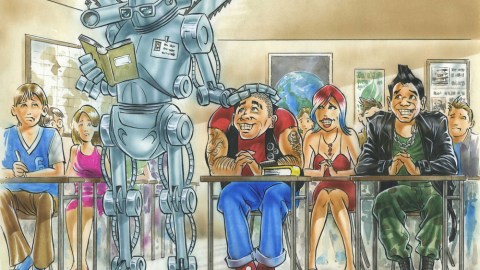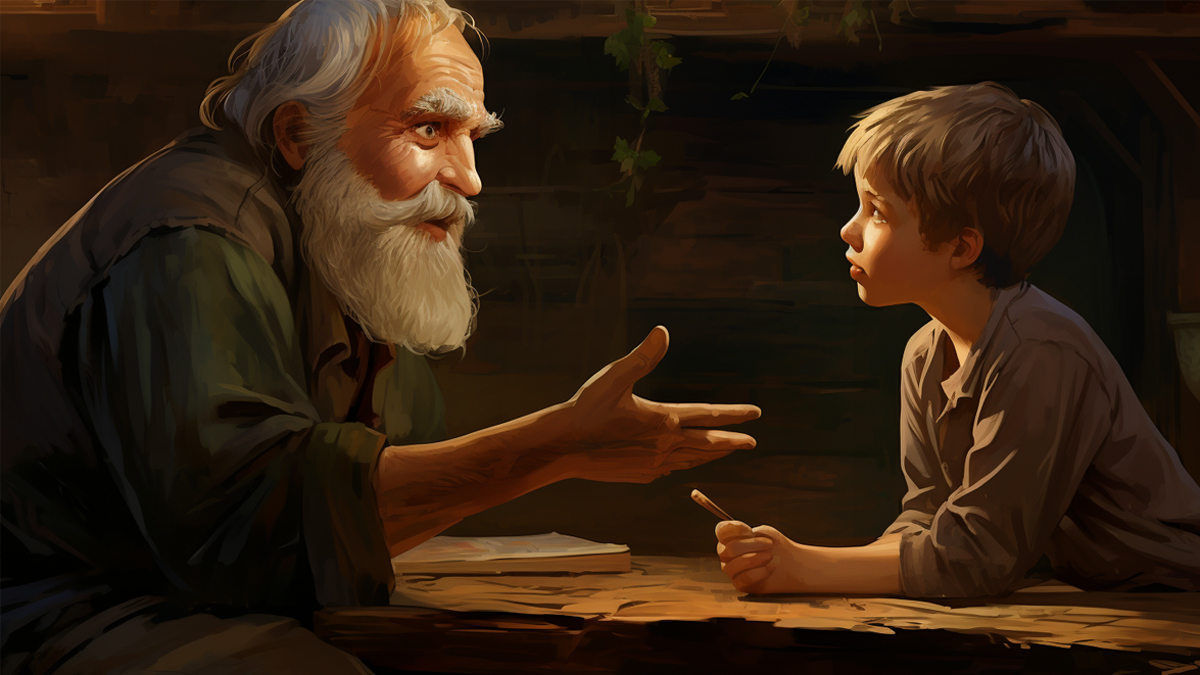AI Will Deliver Education on Demand

Education hasn’t really changed over the last 150 years. It very much is the education of an agrarian society where you would have a teacher in the front of the classroom, a bell would ring, the kids would change classes, they’d sit down, they’d listen, the bell would ring, they’d change classes.
It was very much the factory worker mentality. Move to your next station and do your next thing and it hasn’t changed much in 150 years and what we know today is that students actually learn far better by doing, by exploring, by interacting with each other. Technology is coming online to change the classroom experience from someplace that you just listen passively to turn the classroom experience into someplace where you interact with somebody. You ask questions together. You investigate together.
The work that Khan Academy is doing is extraordinary. It’s a place to learn a subject at the rate you want to learn it, where you can stop it, rewind it, start it again or go back remedially. It’s a fantastic tool. And the concept is that why don’t you actually, for homework, go home and listen to these lectures, relax at home and when you’re in the classroom instead of listening passively to a faculty member that’s the time where you work with your fellow students. You help each other. You ask questions. You do experiments and it’s flipping the model of education on its head and I think it’s a brilliant idea.
The only thing we’re going to add on top of that is when artificial intelligence comes online we will have an AI that can speak and listen in natural language you can have a conversation that can answer any questions you want.
So you say “Why does water on the side of the glass move up?” and it can say “Well, that’s the cohesive forces of water and the glass” and it will explain Van der Waals forces or whatever it might be. But literally you’re able to have an AI answer any question you want no matter how stupid you think it might be. So you can spend your time with your fellow students and your faculty members in a way that builds empathy and builds connection and builds community, which is what you should be doing with other humans.
Learning facts and figures are going to be best done by technology feeding them to you the way you want to hear them, when you want to hear them.
In Their Own Words is recorded in Big Think’s studio.
Image courtesy of Shutterstock





